-
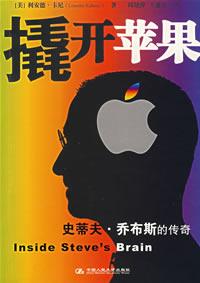
撬开苹果
本书从1996年乔布斯以临时首席执行官(interim-CEO,iCEO)的身份重返苹果公司开始讲起。但是,对于早期诸如苹果二代或者最初的麦金塔电脑之类项目的一些细节情况,本书也有提及,尤其是那些可以说明乔布斯所持原则的项目。 苹果公司本身并没有参与本书的撰写工作。本书只是一本非官方的商业传记。撰写此书的早期,苹果公司公关部给作者打电话表示,苹果公司对本书不给予官方认可。当时作者认为自己很可能会惹上官司,因为之前撰写乔布斯传记的大部分作者都遭到了乔布斯的起诉;但实际情况比作者预料的要好。苹果公司并没有威胁作者,而是设法弄清楚作者究竟打算在书中写什么内容。作者设法让他们相信本书整体的角度是积极的,最重要的是,将以乔布斯崇拜者的身份撰写此书,而不是像先前的很多传记一样揭秘他的生活。自此之后,尽管由于作者在《连线》杂志(Wired)工作的缘故,每天都要与苹果公司公关部打交道,但他们再也没有和作者谈论过此事。 -
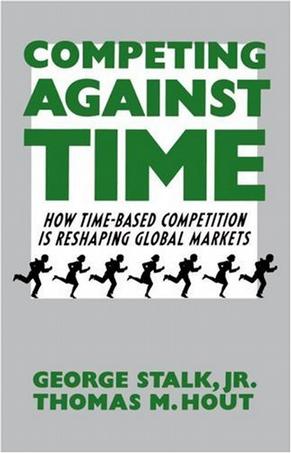
Competing Against Time
Today, time is the cutting edge. In fact, as a strategic weapon, contend George Stalk, Jr., and Thomas M. Hout, time is the equivalent of money, productivity, quality, even innovation. In this path-breaking book based upon ten years of research, the authors argue that the ways leading companies manage time—in production, in new product development, and in sales and distribution—represent the most powerful new sources of competitive advantage. With many detailed examples from companies that have put time-based strategies in place, such as Federal Express, Ford, Milliken, Honda, Deere, Toyota, Sun Microsystems, Wal-Mart, Citicorp, Harley-Davidson, and Mitsubishi, the authors describe exactly how reducing elapsed time can make the critical difference between success and failure. Give customers what they want when they want it, or the competition will. Time-based companies are offering greater varieties of products and services, at lower costs, and with quicker delivery times than their more pedestrian competitors. Moreover, the authors show that by refocusing their organizations on responsiveness, companies are discovering that long-held assumptions about the behavior of costs and customers are not true: Costs do not increase when lead times are reduced; they decline. Costs do not increase with greater investment in quality; they decrease. Costs do not go up when product variety is increased and response time is decreased; they go down. And contrary to a commonly held belief that customer demand would be only marginally improved by expanded product choice and better responsiveness, the authors show that the actual results have been an explosion in the demand for the product or service of a time-sensitive competitor, in most cases catapulting it into the most profitable segments of its markets. With persuasive evidence, Stalk and Hout document that time consumption, like cost, is quantifiable and therefore manageable. Today's new-generation companies recognize time as the fourth dimension of competitiveness and, as a result, operate with flexible manufacturing and rapid-response systems, and place extraordinary emphasis on R&D and innovation. Factories are close to the customers they serve. Organizations are structured to produce fast responses rather than low costs and control. Companies concentrate on reducing if not eliminating delays and using their response advantage to attract the most profitable customers. Stalk and Hout conclude that virtually all businesses can use time as a competitive weapon. In industry after industry, they illustrate the processes involved in becoming a time-based competitor and the ways managers can open and sustain a significant advantage over the competition. -
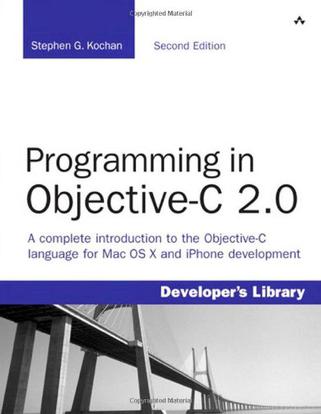
Programming in Objective-C 2.0
THE #1 BESTSELLING BOOK ON OBJECTIVE-C 2.0 Programming in Objective-C 2.0 provides the new programmer a complete, step-by-step introduction to Objective-C, the primary language used to develop applications for the iPhone, iPad, and Mac OS X platforms. The book does not assume previous experience with either C or object-oriented programming languages, and it includes many detailed, practical examples of how to put Objective-C to use in your everyday iPhone/iPad or Mac OS X programming tasks. A powerful yet simple object-oriented programming language that's based on the C programming language, Objective-C is widely available not only on OS X and the iPhone/iPad platform but across many operating systems that support the gcc compiler, including Linux, Unix, and Windows systems. The second edition of this book thoroughly covers the latest version of the language, Objective-C 2.0. And it shows not only how to take advantage of the Foundation framework's rich built-in library of classes but also how to use the iPhone SDK to develop programs designed for the iPhone/iPad platform. Table of Contents 1 Introduction Part I: The Objective-C 2.0 Language 2 Programming in Objective-C 3 Classes, Objects, and Methods 4 Data Types and Expressions 5 Program Looping 6 Making Decisions 7 More on Classes 8 Inheritance 9 Polymorphism, Dynamic Typing, and Dynamic Binding 10 More on Variables and Data Types 11 Categories and Protocols 12 The Preprocessor 13 Underlying C Language Features Part II: The Foundation Framework 14 Introduction to the Foundation Framework 15 Numbers, Strings, and Collections 16 Working with Files 17 Memory Management 18 Copying Objects 19 Archiving Part III: Cocoa and the iPhone SDK 20 Introduction to Cocoa 21 Writing iPhone Applications Part IV: Appendixes A Glossary B Objective-C 2.0 Language Summary C Address Book Source Code D Resources -
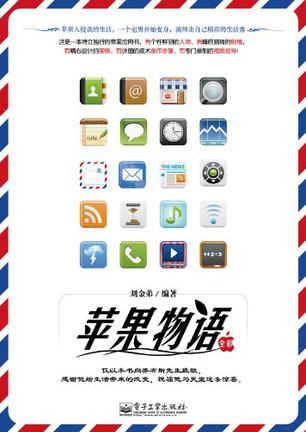
苹果物语
欢迎来到《苹果物语》的世界,这本书将带给你轻松学习如何使用苹果产品的极酷体验。 苹果公司的全线产品已经彻底地融入了我们的生活中,我们可以通过iMac电脑和Macbook笔记本电脑进行工作,也可以通过iPod或是iPad来娱乐,而iPhone手机更是模糊了工作、娱乐和沟通的界线。买到新款的Macbook或是iPhone,你心满意足,但三分钟兴奋过后,问题也就来了,这玩意儿应该怎么用呐? 购买苹果产品非常简单,有效地使用他们却也需要专业的指导。市面上有很多苹果类的教程书籍,他们真的很专业,1、2、3,a/b/c,第一,第二,第三。。。如果每天花上一两个小时预习、复习,再专门腾出时间学习,几个月后,你一定也能成为苹果应用高手,问题是。。。我们每天能有那么多时间吗? 《苹果物语》的形式和你以前见过的电脑应用教材完全不同。阅读《苹果物语》就像是看一部美剧风格的生活单元剧一样。书中的女主角coco对电脑一窍不通,但在两个可爱的宅男苹果控的帮助下,她不但成为了苹果产品应用高手,甚至还通过苹果产品的操作技能开启了自己工作上的新局面。而书中登场的独立摄影师、背包客等角色更是将自己在生活中如何运用苹果产品的宝贵经验和盘托出,让读者轻松掌握高端的苹果产品运用技巧。 读完《苹果物语》,你将掌握使用Mac电脑和iPhone进行日常工作、娱乐的基本技能,也能学到不少可以让身边好友们惊呼的酷炫绝技,更能读到一个就像是发生在我们身边的有趣故事,相当于花一份钱,买了三本书,实在是赚翻了! 阅读《苹果物语》,用看美剧般的轻松方式成为苹果产品应用高手,赶紧购买,演绎属于自己的苹果生活秀吧! -
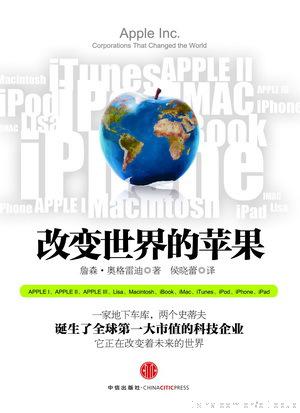
改变世界的苹果
苹果让自己的亮相来得太迟,似乎全世界都在等待被它改变。 如今,苹果在科技领域的硬件、软件以及用户界面都堪称完美,它的领袖地位已迅速扩展到现代生活的各个方面,勇于创新的改革策略只为服务到每一个客户。 苹果也早已开始影响科技之外的文化领域,它已经代表一种生活品位,一个时尚符号。 本书讲述改变世界的苹果产品,以及为z努力奋斗并从未停止梦想的人们。 -
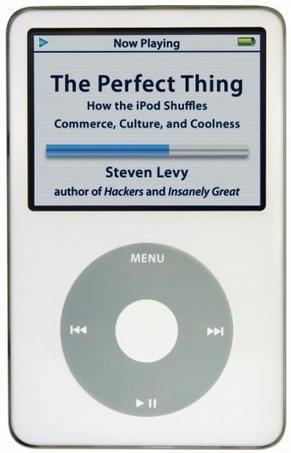
The Perfect Thing
On October 23, 2001, Apple Computer, a company known for its chic, cutting-edge technology -- if not necessarily for its dominant market share -- launched a product with an enticing promise: You can carry an entire music collection in your pocket. It was called the iPod. What happened next exceeded the company's wildest dreams. Over 50 million people have inserted the device's distinctive white buds into their ears, and the iPod has become a global obsession. The Perfect Thing is the definitive account, from design and marketing to startling impact, of Apple's iPod, the signature device of our young century. Besides being one of the most successful consumer products in decades, the iPod has changed our behavior and even our society. It has transformed Apple from a computer company into a consumer electronics giant. It has remolded the music business, altering not only the means of distribution but even the ways in which people enjoy and think about music. Its ubiquity and its universally acknowledged coolness have made it a symbol for the digital age itself, with commentators remarking on "the iPod generation." Now the iPod is beginning to transform the broadcast industry, too, as podcasting becomes a way to access radio and television programming. Meanwhile millions of Podheads obsess about their gizmo, reveling in the personal soundtrack it offers them, basking in the social cachet it lends them, even wondering whether the device itself has its own musical preferences. Steven Levy, the chief technology correspondent for Newsweek magazine and a longtime Apple watcher, is the ideal writer to tell the iPod's tale. He has had access to all the key players in the iPod story, including Steve Jobs, Apple's charismatic cofounder and CEO, whom Levy has known for over twenty years. Detailing for the first time the complete story of the creation of the iPod, Levy explains why Apple succeeded brilliantly with its version of the MP3 player when other companies didn't get it right, and how Jobs was able to convince the bosses at the big record labels to license their music for Apple's groundbreaking iTunes Store. (We even learn why the iPod is white.) Besides his inside view of Apple, Levy draws on his experiences covering Napster and attending Supreme Court arguments on copyright (as well as his own travels on the iPod's click wheel) to address all of the fascinating issues -- technical, legal, social, and musical -- that the iPod raises. Borrowing one of the definitive qualities of the iPod itself, The Perfect Thing shuffles the book format. Each chapter of this book was written to stand on its own, a deeply researched, wittily observed take on a different aspect of the iPod. The sequence of the chapters in the book has been shuffled in different copies, with only the opening and concluding sections excepted. "Shuffle" is a hallmark of the digital age -- and The Perfect Thing, via sharp, insightful reporting, is the perfect guide to the deceptively diminutive gadget embodying our era.